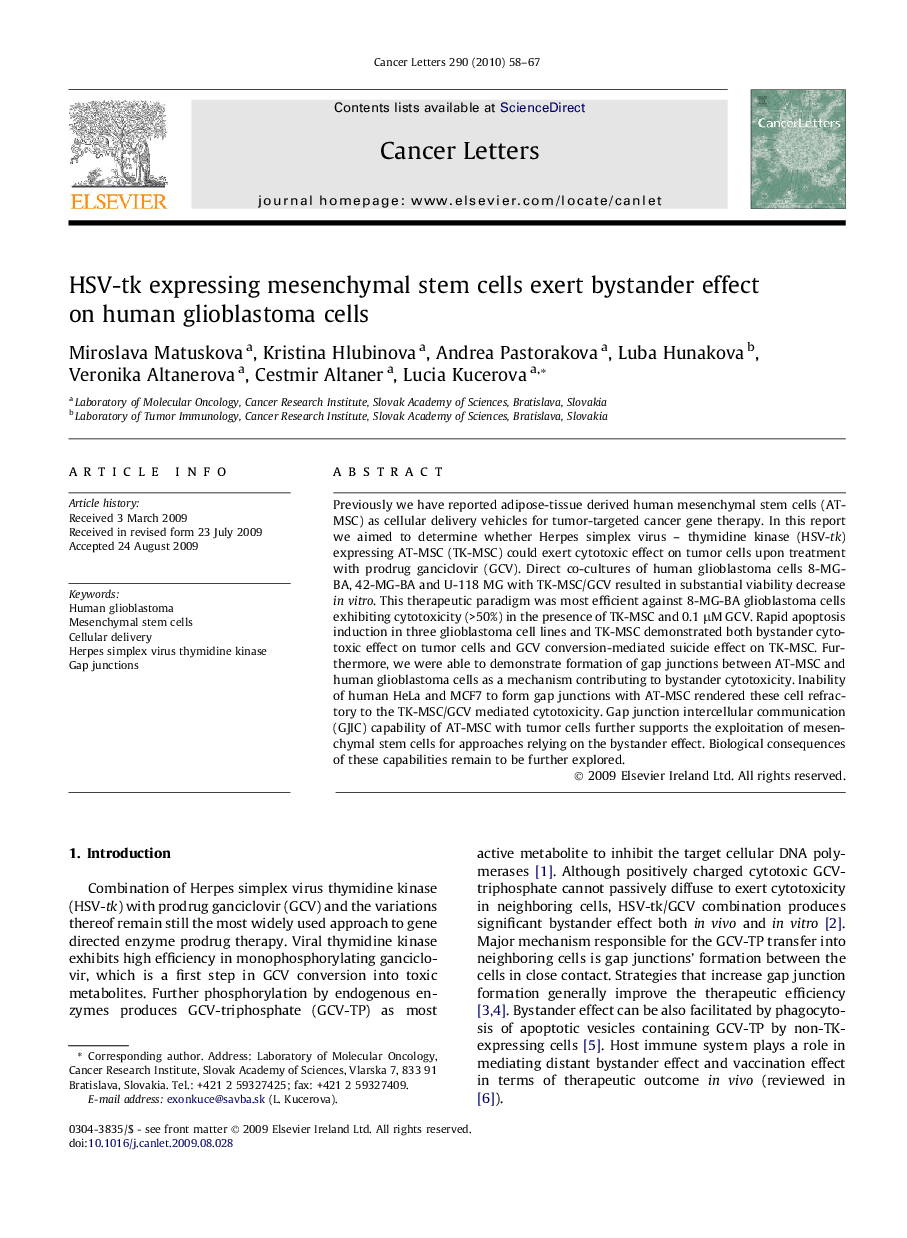| Article ID | Journal | Published Year | Pages | File Type |
|---|---|---|---|---|
| 2114149 | Cancer Letters | 2010 | 10 Pages |
Previously we have reported adipose-tissue derived human mesenchymal stem cells (AT-MSC) as cellular delivery vehicles for tumor-targeted cancer gene therapy. In this report we aimed to determine whether Herpes simplex virus – thymidine kinase (HSV-tk) expressing AT-MSC (TK-MSC) could exert cytotoxic effect on tumor cells upon treatment with prodrug ganciclovir (GCV). Direct co-cultures of human glioblastoma cells 8-MG-BA, 42-MG-BA and U-118 MG with TK-MSC/GCV resulted in substantial viability decrease in vitro. This therapeutic paradigm was most efficient against 8-MG-BA glioblastoma cells exhibiting cytotoxicity (>50%) in the presence of TK-MSC and 0.1 μM GCV. Rapid apoptosis induction in three glioblastoma cell lines and TK-MSC demonstrated both bystander cytotoxic effect on tumor cells and GCV conversion-mediated suicide effect on TK-MSC. Furthermore, we were able to demonstrate formation of gap junctions between AT-MSC and human glioblastoma cells as a mechanism contributing to bystander cytotoxicity. Inability of human HeLa and MCF7 to form gap junctions with AT-MSC rendered these cell refractory to the TK-MSC/GCV mediated cytotoxicity. Gap junction intercellular communication (GJIC) capability of AT-MSC with tumor cells further supports the exploitation of mesenchymal stem cells for approaches relying on the bystander effect. Biological consequences of these capabilities remain to be further explored.
